Abstract
1. Tensions in the horizontal rectus muscles have simultaneously and continuously been recorded during unrestricted eye movements in four strabismus patients, using force transducers small enough to be implanted in series between the tendons and their points of insertion on the globe. 2. Levels of tension required to maintain fixation at each position of gaze vary from a minimum of 8-12 g approximately 15 degrees outside of muscle's field of action to a maximum of around 40 g at extreme gaze within the muscle's field of action. When tension is plotted as a function of eye position, the static locus of fixation tension levels exhibits a parabolic relationship. 3. Tensions recorded during smooth following movements parallel or slightly exceed those of fixation. 4. At the onset of a saccade, tension in the agonist rises isometrically, then, as the eye moves, tension levels parallel those of fixation but with an isotonic increment of 15-25 g. At the end of the saccadic movement, tension falls essentially isometrically to the new fixation level. 5. Tension in the antagonist reveals an unexpected peak at the onset of a saccade. 6. For saccadic movements tension increments of 15-25 g above the fixation levels suffice to move the eye rapidly to a new position of gaze, regardless of the duration of the saccade and the location of the new fixation point. 7. Maximum and minimum levels of tension during normal fixation, following and saccadic movements, plotted as a function of eye position, form an operational envelope which defines the limits of muscle forces during normal eye movements. The lowest level of this envelope is the parabolic static locus of fixation tensions.
Full text
PDF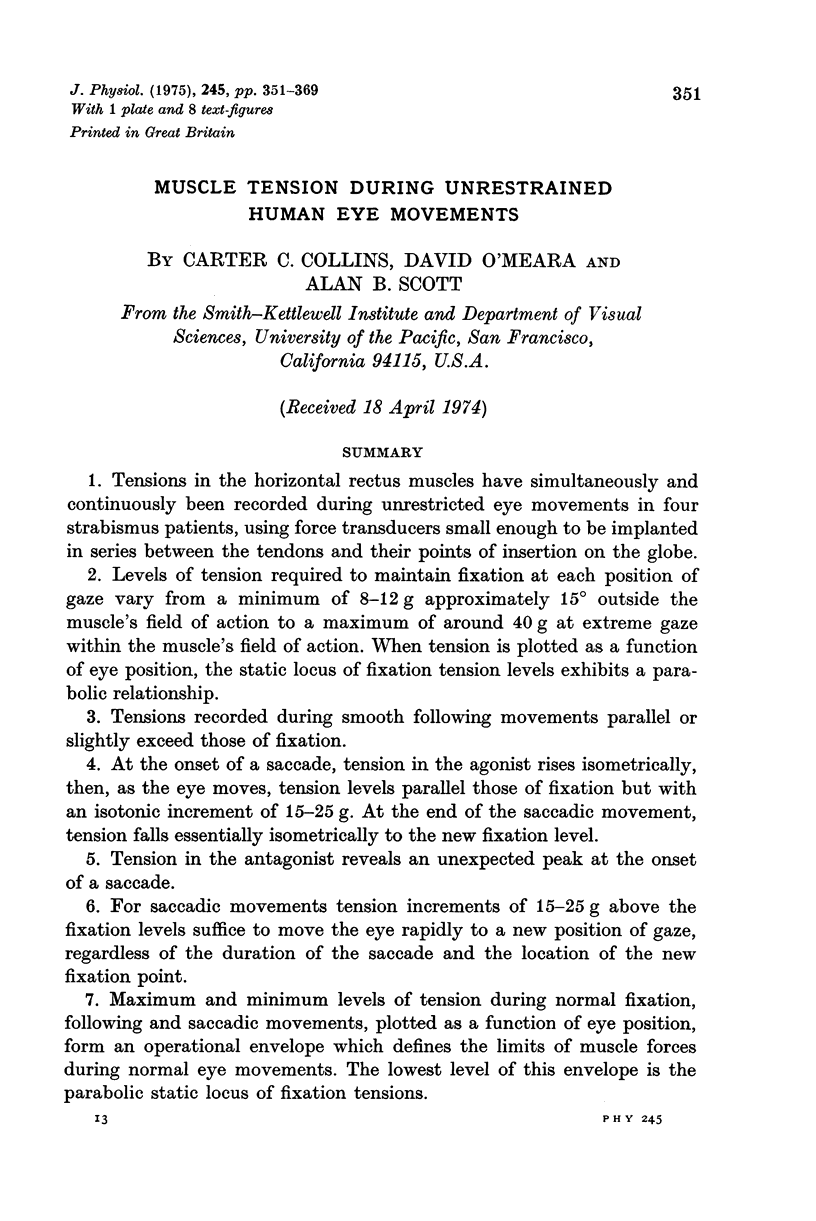
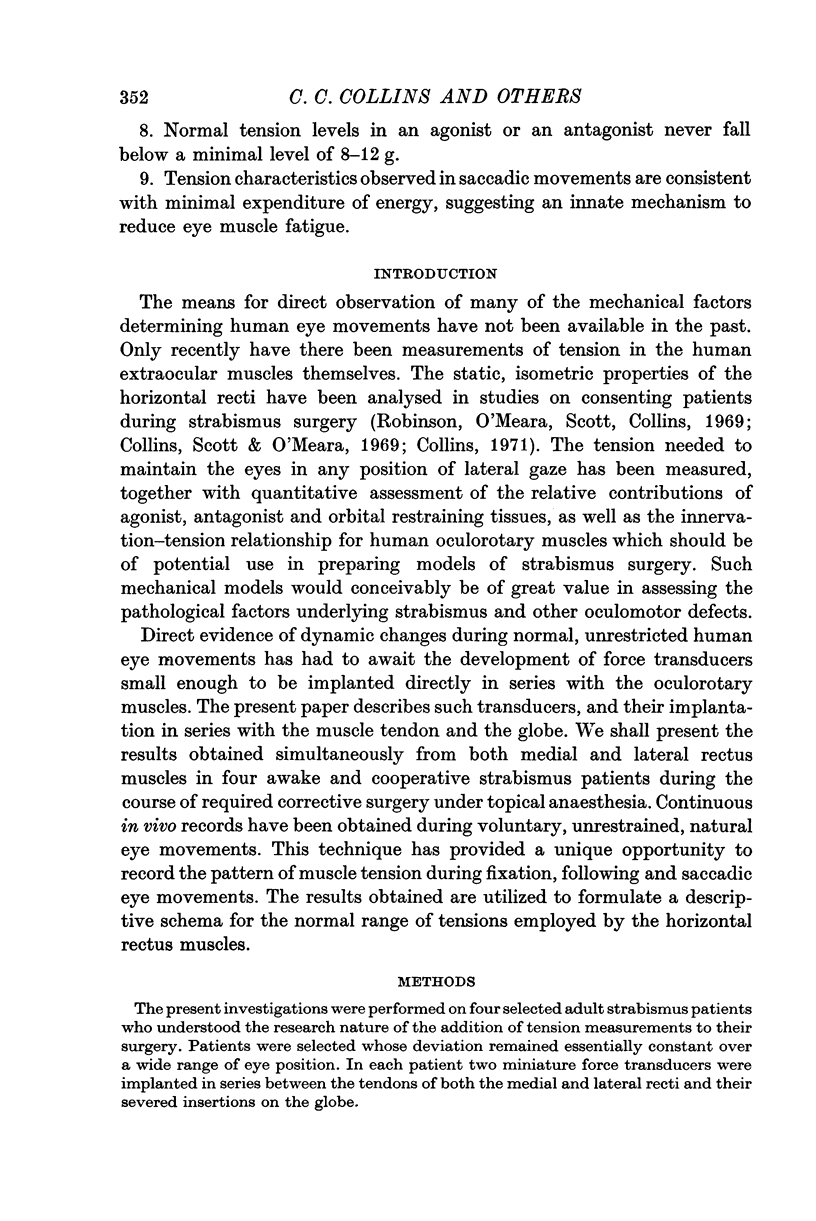
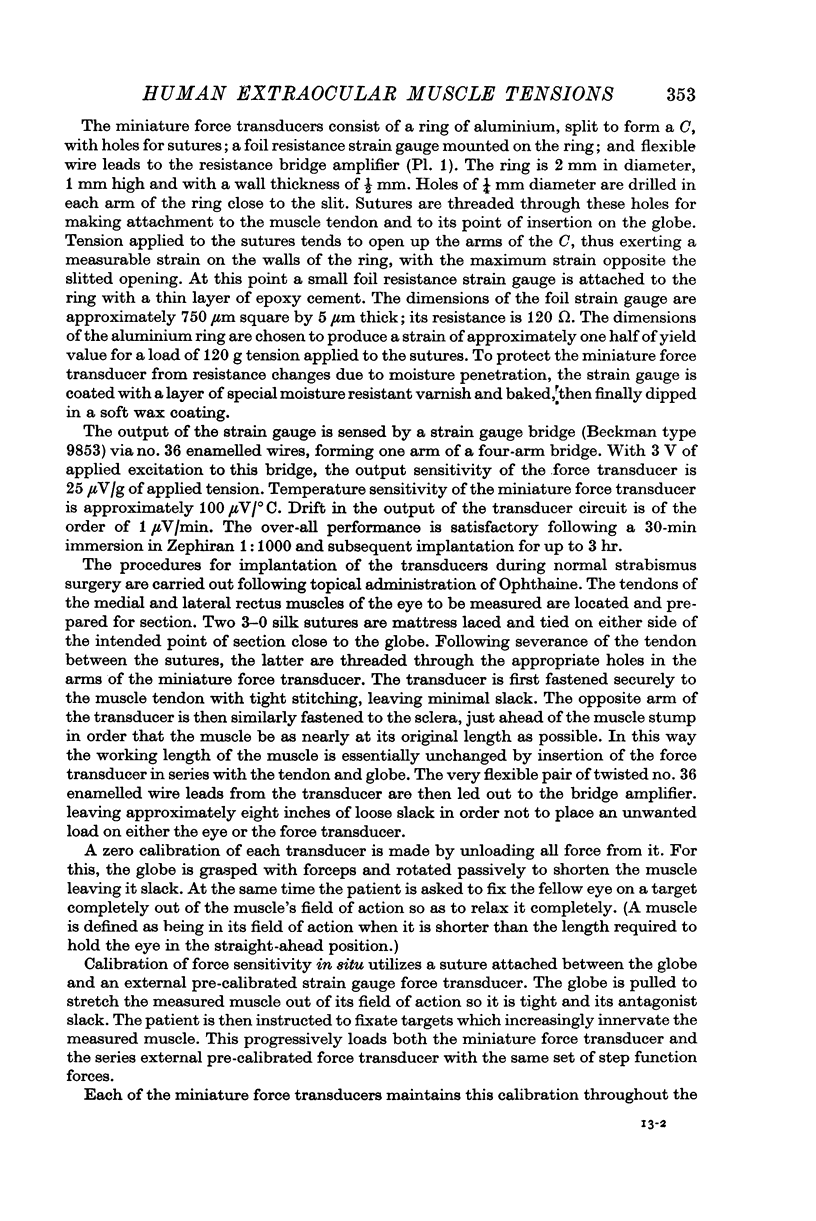
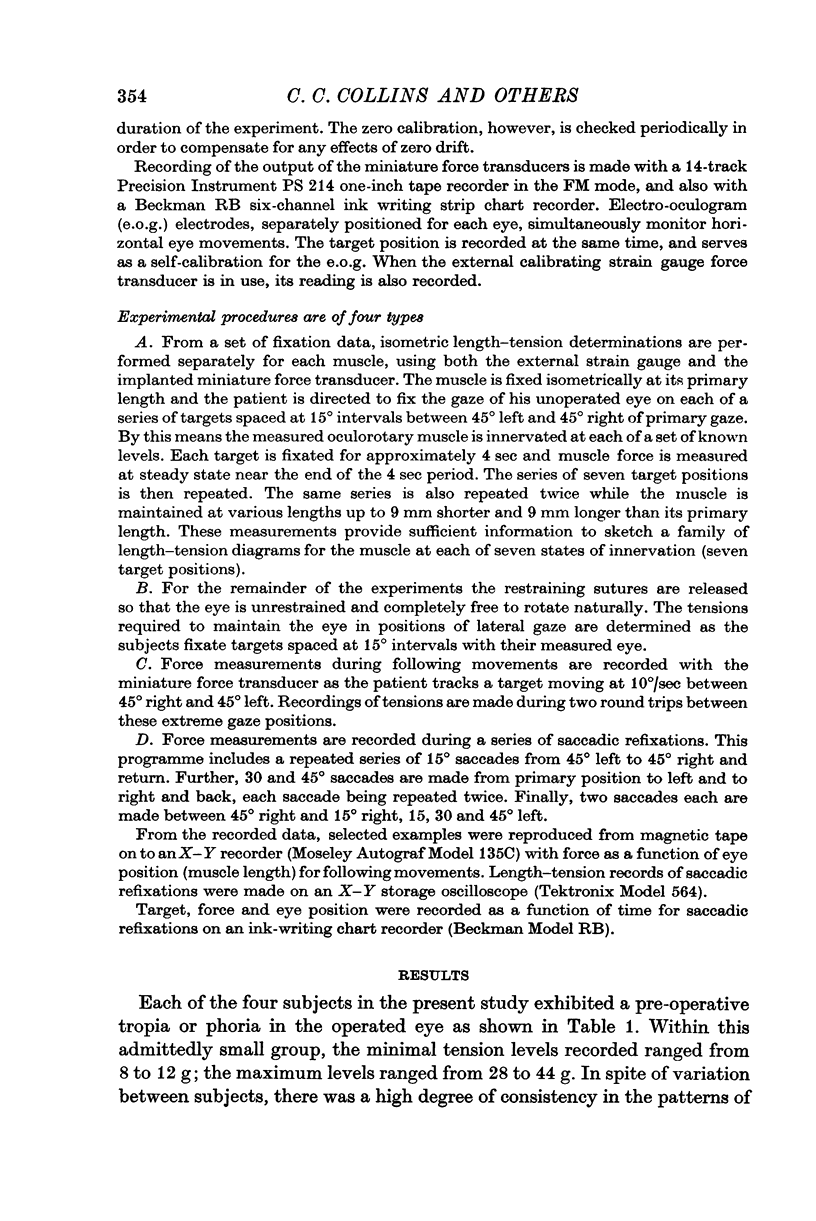
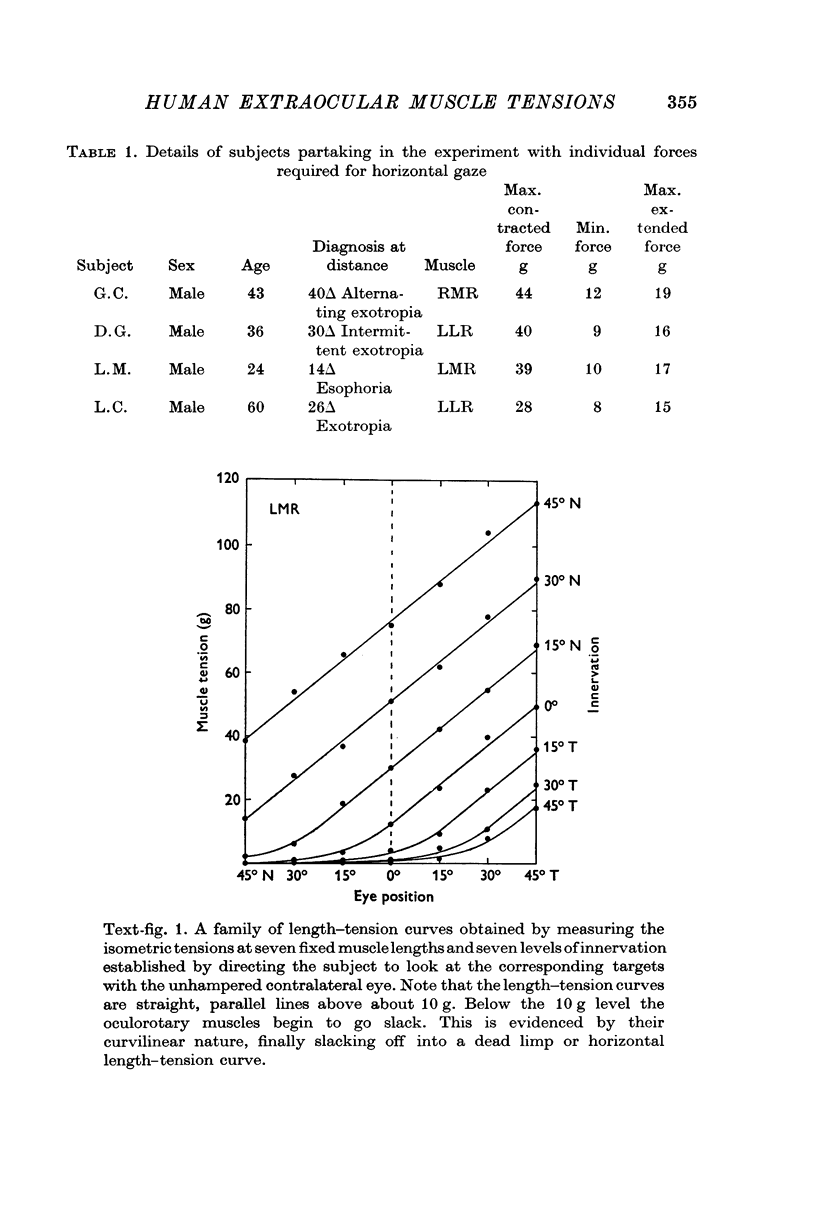
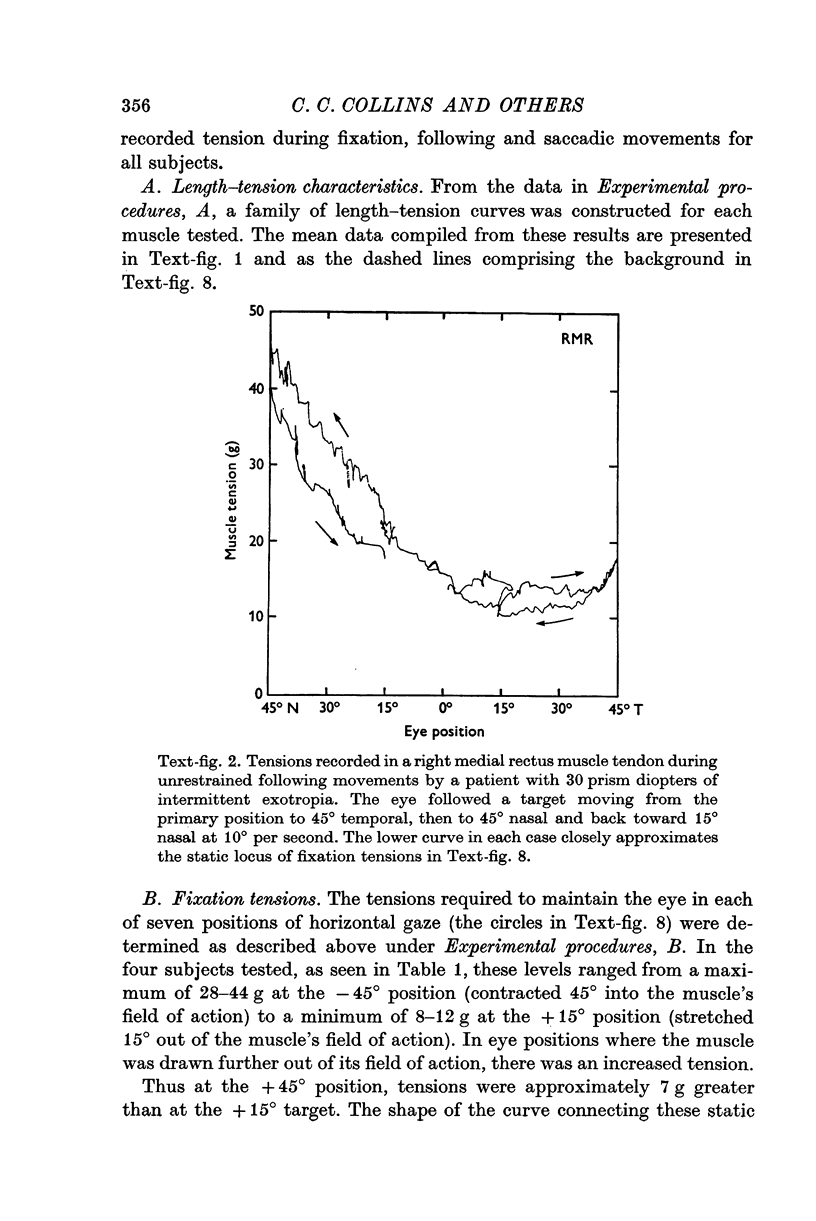
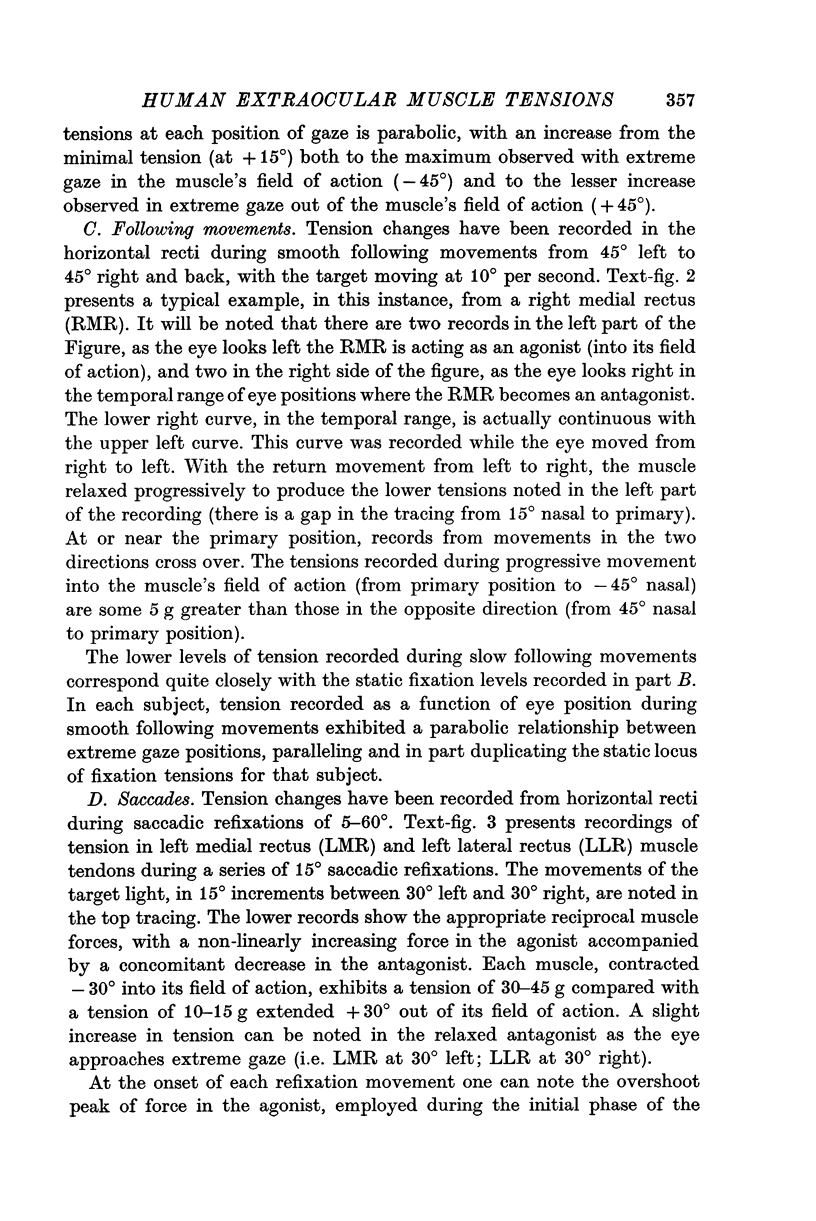
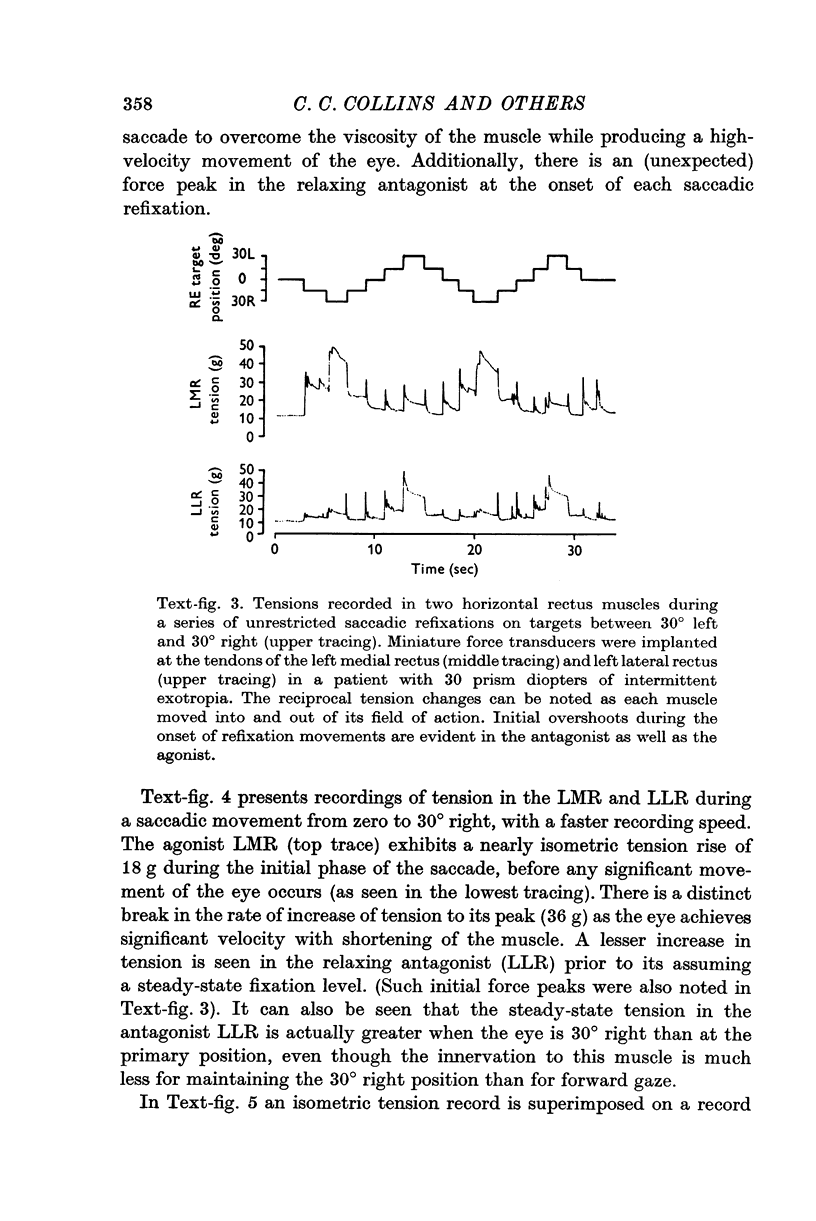
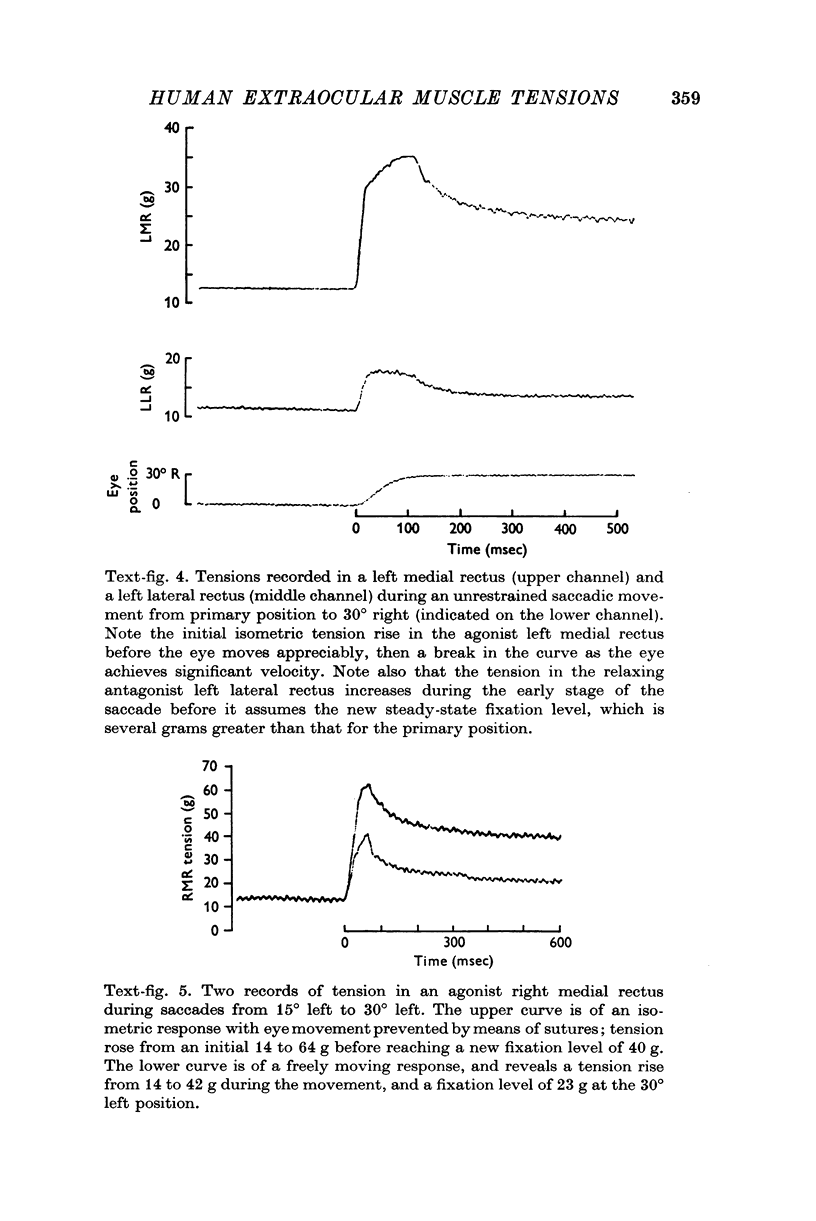
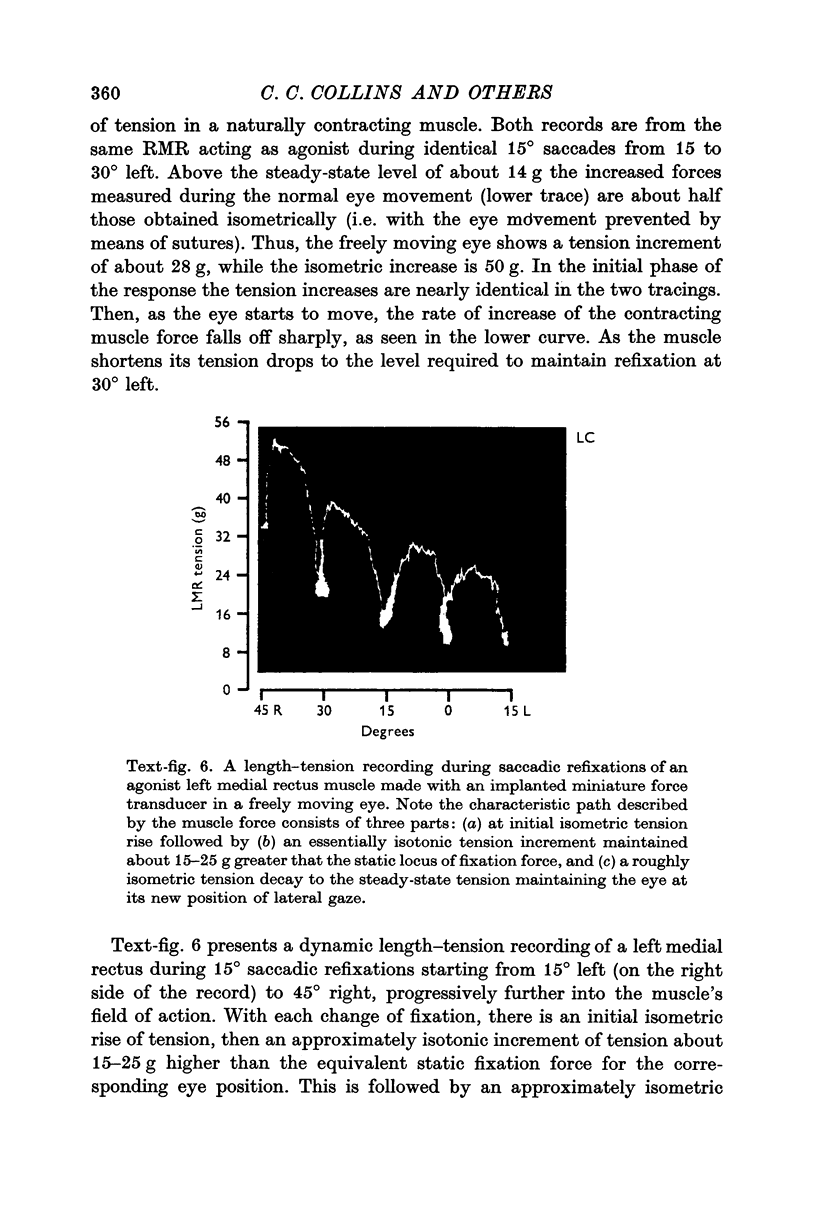
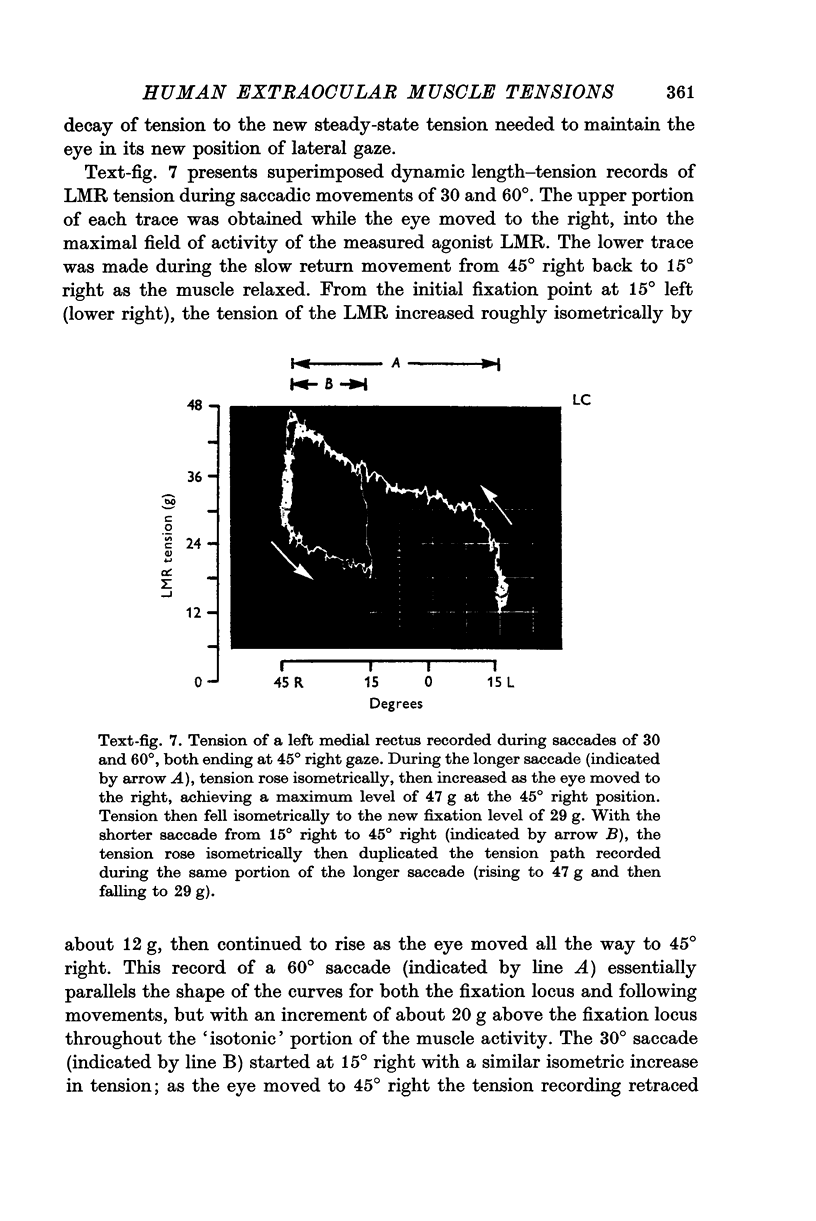
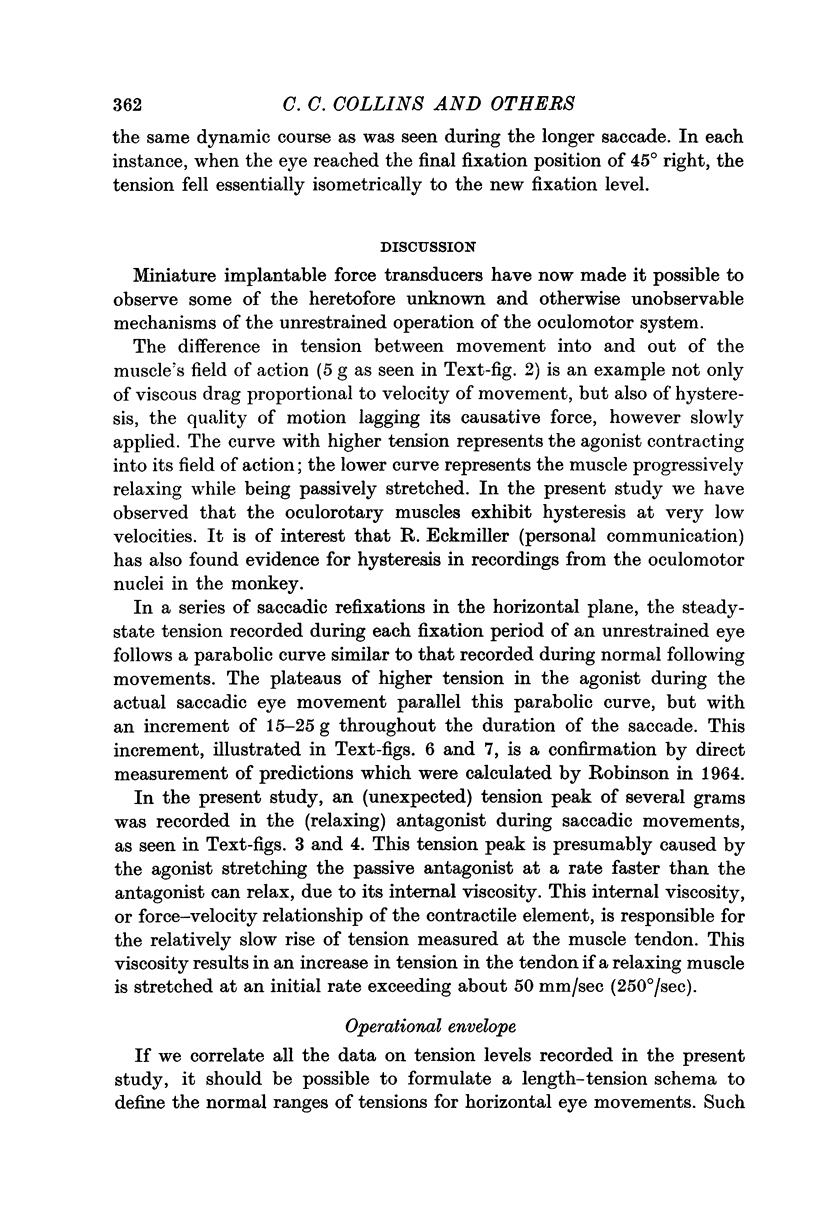
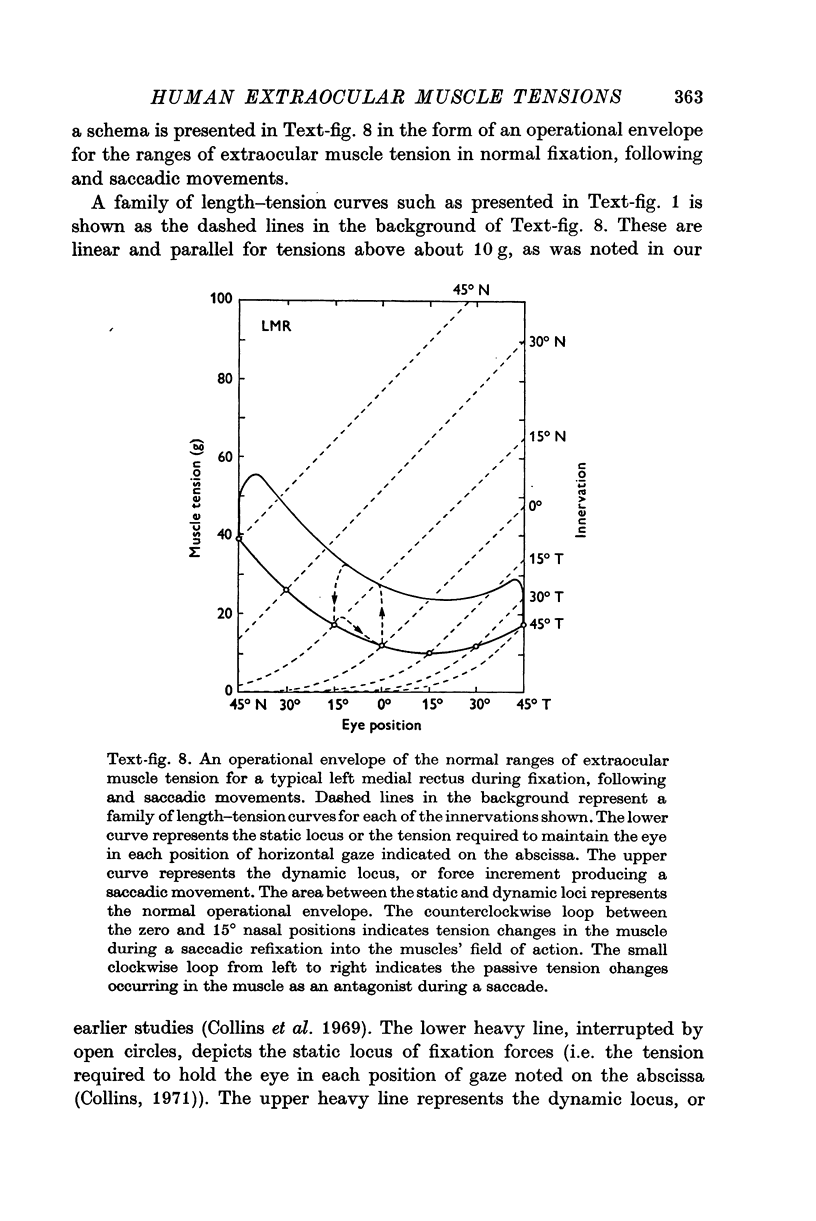
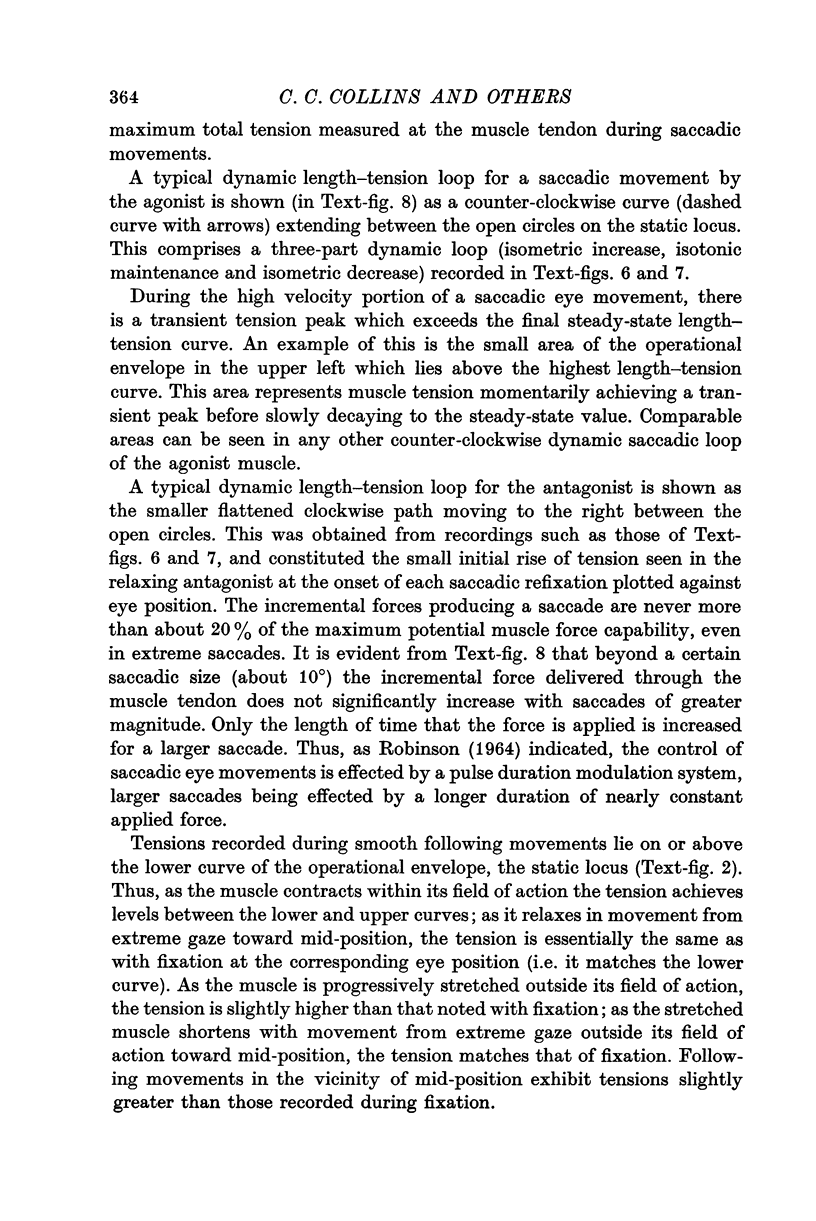
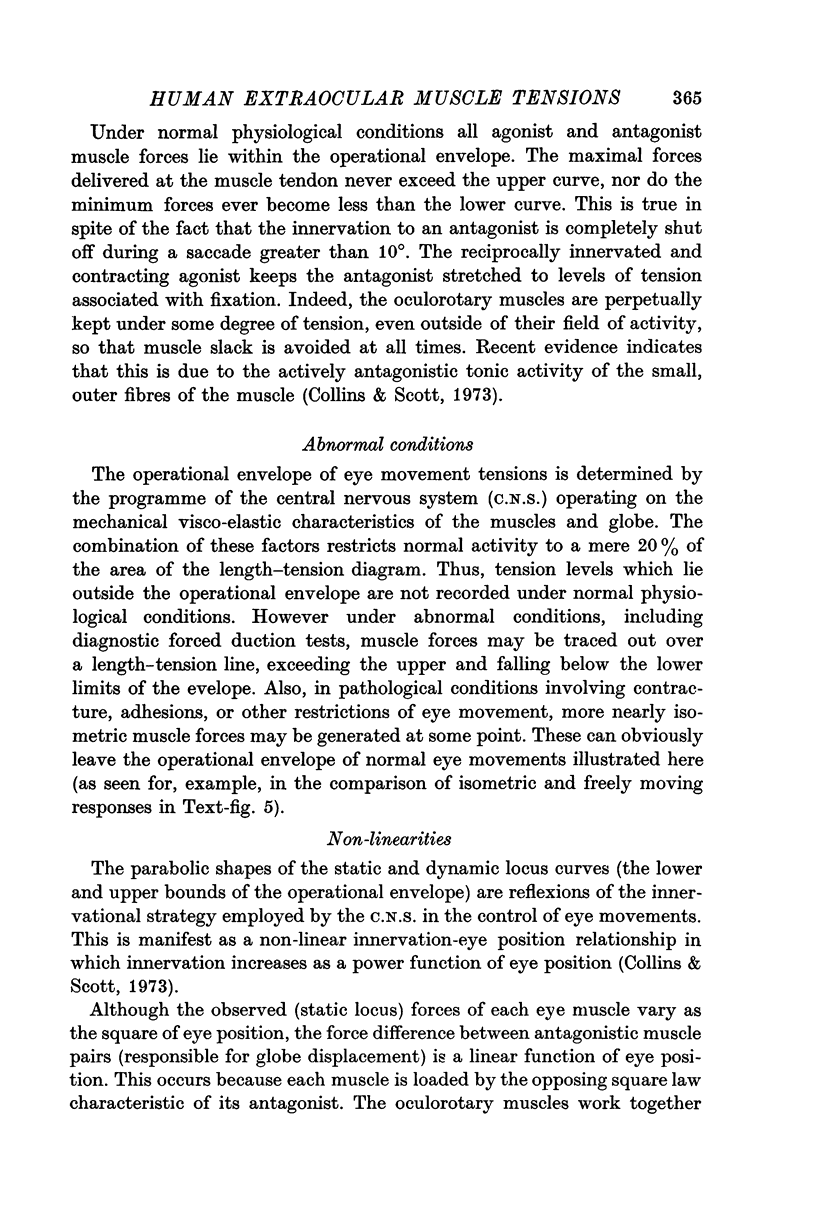
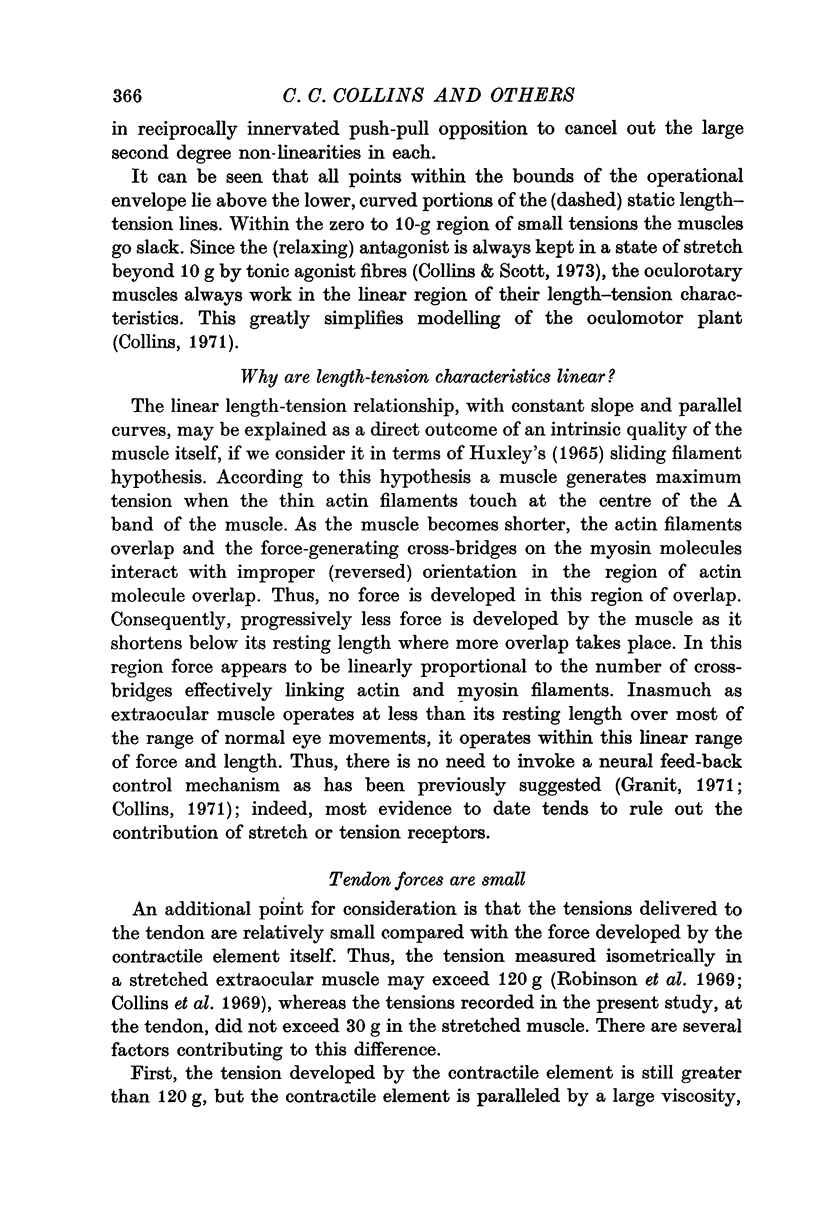
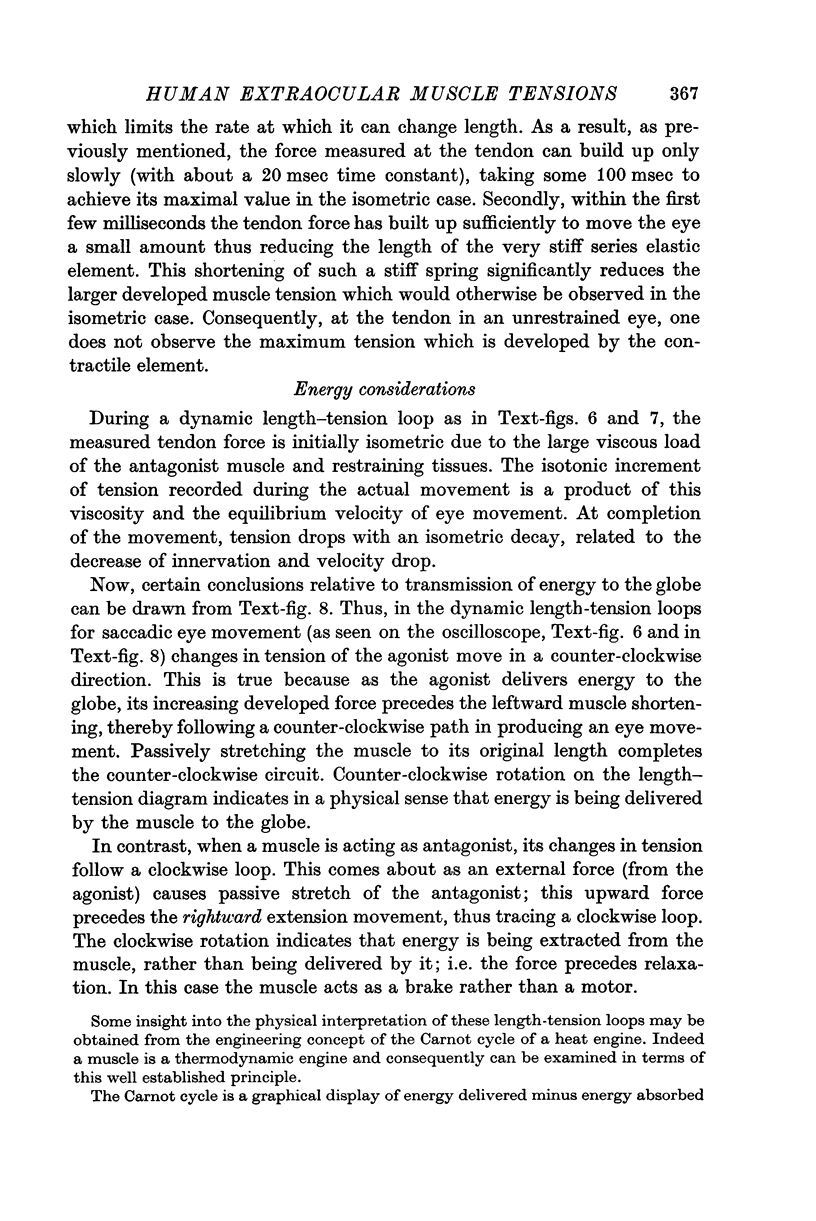
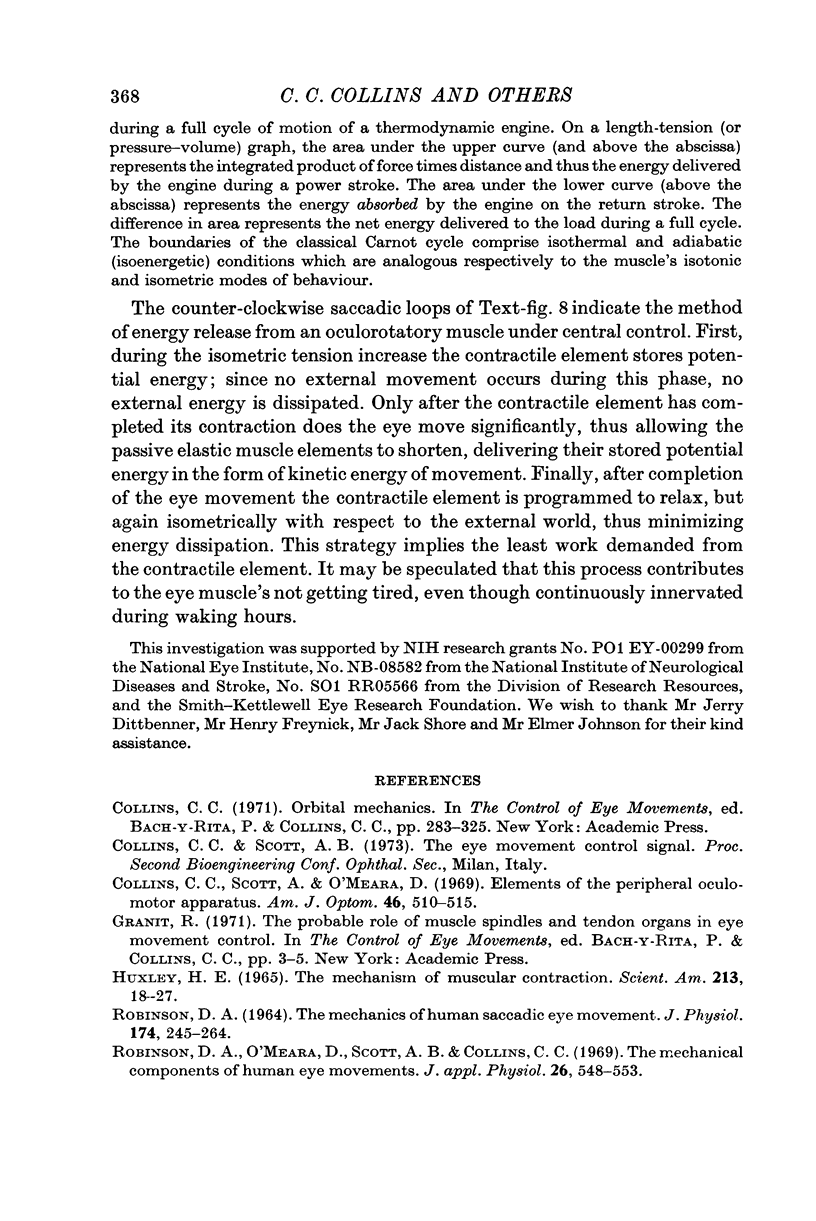
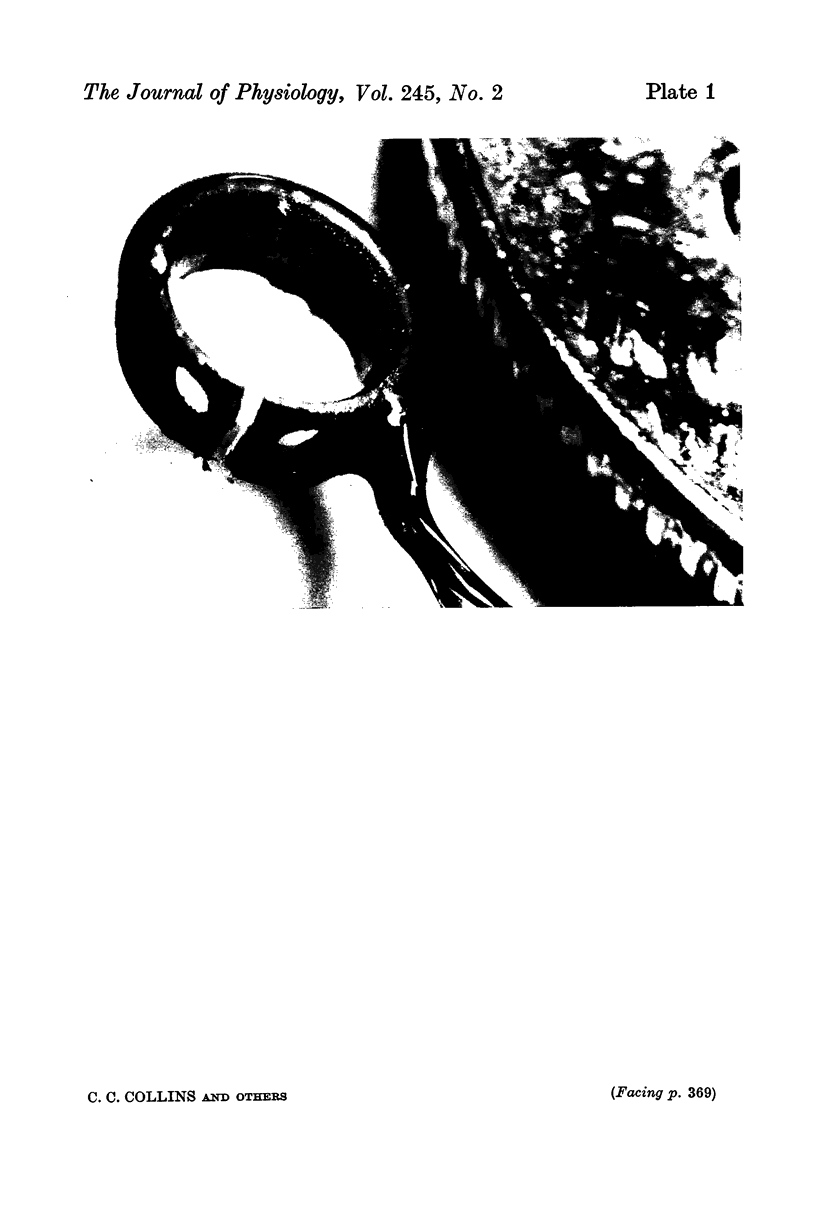
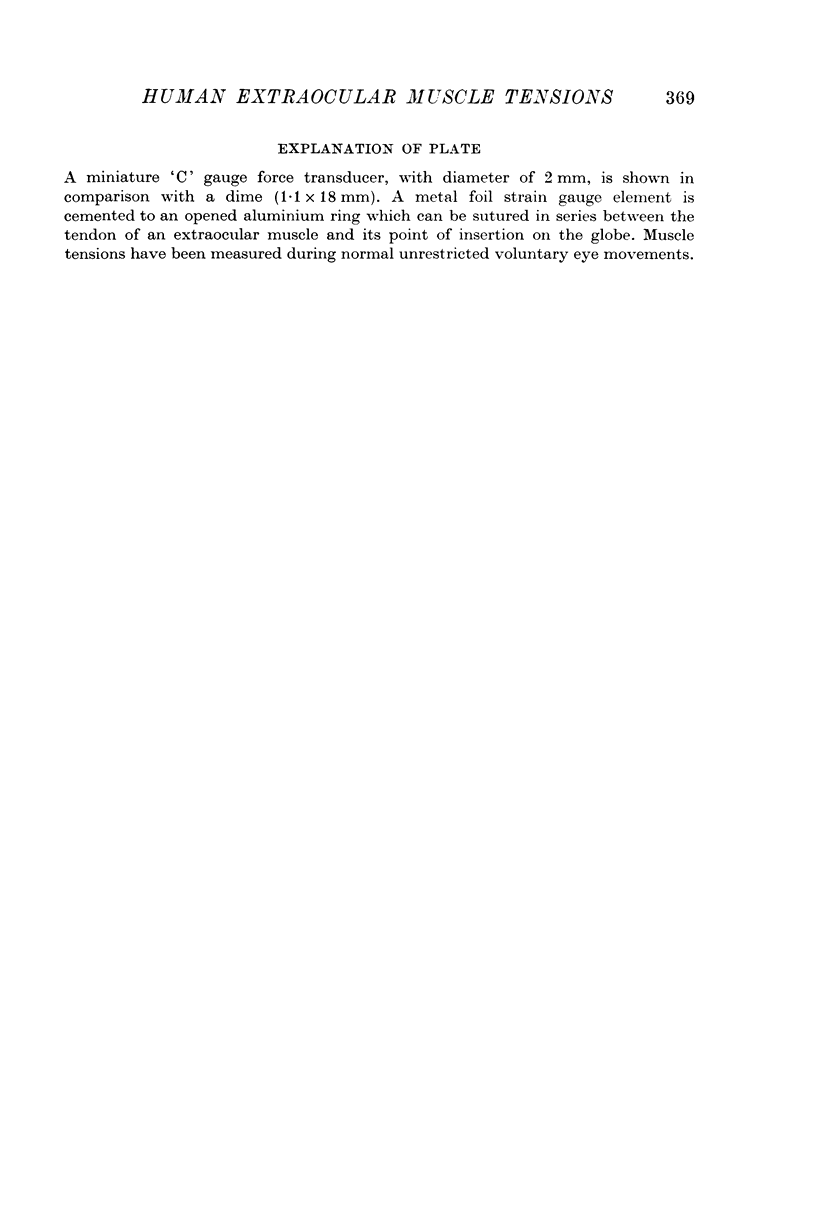
Images in this article
Selected References
These references are in PubMed. This may not be the complete list of references from this article.
- Collins C. C., Scott A. B., O'Meara D. M. Elements of the peripheral oculomotor apparatus. Am J Optom Arch Am Acad Optom. 1969 Jul;46(7):510–515. doi: 10.1097/00006324-196907000-00004. [DOI] [PubMed] [Google Scholar]
- Huxley H. E. The mechanism of muscular contraction. Sci Am. 1965 Dec;213(6):18–27. doi: 10.1038/scientificamerican1265-18. [DOI] [PubMed] [Google Scholar]
- ROBINSON D. A. THE MECHANICS OF HUMAN SACCADIC EYE MOVEMENT. J Physiol. 1964 Nov;174:245–264. doi: 10.1113/jphysiol.1964.sp007485. [DOI] [PMC free article] [PubMed] [Google Scholar]
- Robinson D. A., O'Meara D. M., Scott A. B., Collins C. C. Mechanical components of human eye movements. J Appl Physiol. 1969 May;26(5):548–553. doi: 10.1152/jappl.1969.26.5.548. [DOI] [PubMed] [Google Scholar]



